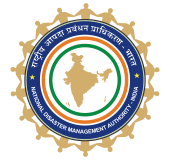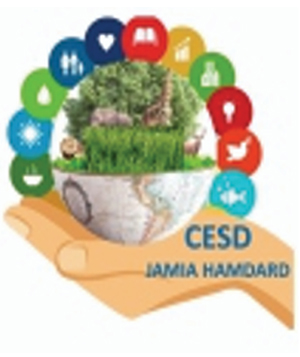🌍Technical Dialogues
The Technical Dialogues would be aligned with the themes of Plenary Dialogues. Researchers, policy makers and practitioners would present their papers in these sessions on a wide range of issues related to each of these key themes. Technical Session shall be held concurrently post-lunch and the registered delegates will be free to attend the sessions of their choice. Each session shall be chaired by a subject matter specialist who will moderate the presentation of papers to be followed by dialogues with participants. Each session shall have 120 minutes with half an hour tea break.
GDCCA & DRR shall be open to accept original research papers and presentations on any other issue related to the themes. Organizers would also be open to suggestions for additional Technical Sessions if a minimum number of 6 papers are contributed by any institution or a group of like-minded researchers for presentation in the session.
- Session –1.1 : Accelerating Implementation of Global Frameworks for Climate and Disaster Risk Management
- Session – 1.2 : Integrating DRR and CCA in National Plans and NDCs- Lessons Learnt and Way Forward
- Session – 1.3 : Risk-Informed Development Planning: Tools, Approaches and Practices
- Session – 1.4 : Climate Resilient Agriculture
- Subtheme 1.4.1: Role of Biotechnology and Genomics in Crop Climate Resilience
- Subtheme 1.4.2: Harnessing Medicinal and Aromatic Plants for Sustainable Adaptation
- Subtheme 1.4.3: Indigenous Knowledge Systems & Agroecology in Climate Change Adaptation
- Session – 1.5 : Building Health System Resilience in Changing Climate
- Subtheme 1.5.1: Traditional Medicine for Climate-Linked Health Challenges
- Subtheme 1.5.2: Advances in Modern Medicine for Climate-Driven Health Risks
- Subtheme 1.5.3: Advances in Nanomedicine for Climate-Driven Health Risks
- Subtheme 1.5.4: Integrating Biotechnology in Climate-Smart Health Systems
- Session – 1.6 : Decentralized Governance and Local CCA and DRR Strategie
- Session – 2.1 : Leaving No One Behind in Building Resilience to Climate and Disasters
- Session – 2.2 : Breaking Climate-Disaster-Poverty Nexus
- Session – 2.3 : Gender, Climate and Disasters
- Session – 2.4 : Disaster and Climate Induced Migration
- Session – 2.5 : Disability and Climate Related Disasters
- Session – 2.6 : Reducing Risks of Most Vulnerable Countries SIDS and LDCs.
- Session – 2.7 : Legal Frameworks for Climate Change Adaptation (CCA) and Disaster Risk Reduction (DRR)
- Session – 3.1 : Global Funding Mechanisms on CCA and DRR: Lessons Learnt and Ways Ahead
- Session – 3.2 : Innovations in Risk Insurance: Sovereign, Parametric, and Micro-insurance Models
- Session – 3.3 : Opportunities and challenges of emerging carbon markets for building resilience
- Session – 3.4 : Private Sector Engagement in Resilience Investment
- Session – 3.5 : Blended Finance for Climate and Disaster Resilience
- Session – 3.6 : Public-Private-People Partnerships for Building Disaster and Climate Resilience
- Session – 4.1 : Early Warning Systems for Extreme and Slow Onset Climate Hazards
- Session – 4.2 : Recent Innovations in Application of Remote Sensing, Drones and GIS for CCA and DRR
- Session – 4.3 : Emerging Technologies for Climate and Disaster Resilient Infrastructure
- Session – 4.4 : Using Artificial Intelligence for Climate and Disaster Risk Management
- Session – 4.5 : Integrating Designs for Climate and Disaster Resilient Houses and Buildings
- Session – 4.6 : Big Data Analysis for Climate and Disaster Risk Management
- Session – 5.1 : Pattern and Trend of Climate and Disaster Risks in an Urbanizing World
- Session – 5.2 : Building Climate and Disaster Resilient Cities
- Session – 5.3 : Scaling Nature Based Solutions for Risk Reduction and Adaptation
- Session – 5.4 : Resilient Coasts: Mangroves, Wetlands, Islands and Deltas
- Session – 5.5 : Climate-Proofing of Critical Infrastructure and Lifelines
- Session – 5.6 : Resilient Urban Planning: Building Safe and Inclusive Cities
- Session - 6.1 : Strengthening Medical, Tourism, and Local Business Supply Chains in Crisis Situations
- Session - 6.2 : Community–Industry–Government Convergence for Inclusive Resilience
- Session - 6.3 : Climate and Disaster Risk Assessment for Tourism Destinations
- Session - 6.4 : Safe Infrastructure and Building Codes for Tourism Hotspots
- Session - 6.5 : Heritage Protection and Cultural Tourism in the Face of DisastersSe
- Session - 6.6 : Capacity Building & Training for Tourism Workforce on Emergency Preparedness
- Session – 7.1 : Climate-Resilient Agriculture and Medicinal Plant Resources.
- Subtheme 7.1.1: Biotechnology and Genomics for Climate-Smart Agriculture
- Subtheme 7.1.2: Harnessing Medicinal and Aromatic Plants for Sustainable Adaptation
- Subtheme 7.1.3: Indigenous Knowledge and Agroecology for Climate Change Resilience
- Session – 7.2 : Advancing Health Resilience through Modern Medicine and Nanotechnology
- Subtheme 7.2.1: Modern Medicine and Pharmaceutical Innovations – addressing climate-driven health risks and strengthening preparedness
- Subtheme 7.2.2: Nanomedicine and Nanodiagnostics – emerging tools for precision healthcare in the context of climate change
- Subtheme 7.2.3: Biotechnology for Health Resilience – leveraging molecular and cellular innovations to enhance adaptive capacity of health systems
- Session – 7.3 : Good and Bad Practices on Community Based Disaster Risk Reduction
- Session – 7.4 : Lessons Learnt on Community Based Climate Change Adaptation
- Session – 7.5 : Traditional Knowledge and Indigenous Approaches to Risk Reduction
- Session – 7.6 : Strengthening Humanitarian System at Global, National and Local Levels for providing humanitarian assistance to people affected by extreme climatic events
ORGANIZERS & COLLABORATORS












